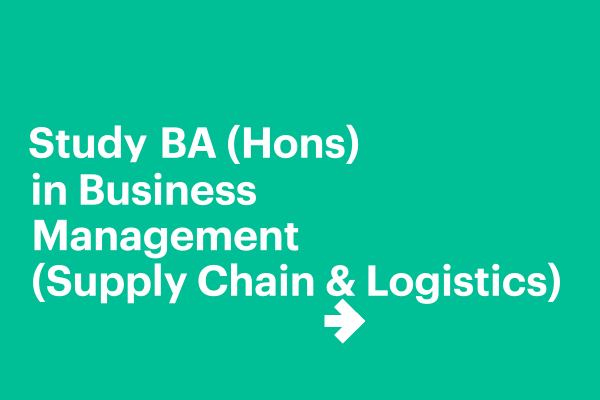Logistics and supply chain management is a fast-growing, technology-driven field within many global industries, especially retail. Read on if you are interested in pursuing a career in this sector or just want to find out more about what it involves.
What is supply chain management?
As we have already mentioned, supply chain management (SCM) is a vital part of business operations in many industries, including retail, healthcare, IT, and construction. The supply chain itself is the production and distribution network between companies and suppliers to make and deliver its products to consumers. Supply chain management, therefore, refers to the regulation of this network, the control of the movement of goods from manufacture to dispatch. Supply chain managers oversee every stage of the process, from purchasing, through production, right up to the delivery of the final product.
Why choose a career in logistics and supply chain management?
The field of logistics and supply chain management is expanding rapidly, opening up lots of employment opportunities in different sectors. It’s a diverse field, in which you can choose to specialize in different industries (e.g., retail or warehousing). You will also have your pick of companies, because organizations of all shapes and sizes require effective supply chain management.
It’s also an excellent field to enter if you’re driven by professional development and progression. Once you’ve got your foot on the ladder as a production or warehouse clerk, for example, you can complete further training and work your way up to become a logistics manager or a global commodities director—and get paid very well for it!
The average supply chain manager earns over €80,000 a year in Germany. Even the salary for candidates with less than three years of experience is good! In Germany, you can expect to go into an entry-level supply chain management role at around €56,000. Plus, these figures are expected to rise by up to 16% by 2026, so now is a good time to be getting into logistics and supply chain management, from a financial point of view.
What skills do you need to start a career in logistics and supply chain management?
- Relationship building & management skills. Building and maintaining mutually beneficial relationships with suppliers, vendors, and customers is a key aspect of any logistics and supply chain management role. To succeed as a supply chain manager, you will therefore need strong communication and interpersonal skills, plus the ability to negotiate if your specific duties include purchasing/procurement.
- Numerical skills, including knowledge of statistics. Inventory, sales, and company finances all fall under the remit of a supply chain manager. You will need to be a confident user of Microsoft Excel to analyze datasets, create forecasts, and communicate your findings or predictions to the relevant personnel.
- IT skills. In addition to a good working knowledge of Microsoft Office Suite, roles in logistics and supply chain management sometimes require the use of specialist software, e.g., for Enterprise Resource Planning (ERP).
- Leadership skills. As a supply chain manager, you won’t just be managing operations, but overseeing staff as well. Take on project or team leadership responsibilities at university to help prepare yourself for managing people in your future career.
- Problem-solving skills. Logistics and supply chain management involves the constant assessment and evaluation of processes. It’s your job, as the supply chain manager, to make things run more efficiently. Therefore, you will need excellent analytical and problem-solving skills to succeed in an SCM role.
How to start a supply chain management career
1. Decide what aspect of supply chain management you are interested in. Supply chain managers control the movement of goods, from the purchasing of production materials, through the manufacturing stage, to the delivery of stock. Different roles within organizations allow you to specialize in specific areas, such as purchasing, procurement, transport, technology, facilities, etc. The area you are most interested in might have an impact on step #2, which is…
2. Choose an industry. The duties of a supply chain manager will vary from role to role, company to company, and sector to sector. Make sure you research the key aspects of logistics and supply chain management in different industries before you commit to one.
3. Gain a degree in a relevant discipline. To pursue a career in logistics and supply chain management, you will first need to get a bachelor’s degree in a relevant subject. Ordinarily, this could be something like Business Administration or Systems Engineering. However, as the industry grows and more and more graduates are looking to enter it, you will find many employers now want to see candidates with a specific logistics and supply chain management degree. This year, EU Business School is proud to offer a new program in Business Management: BA (Hons) in Business Management (Supply Chain & Logistics).
4. Start networking now. If you don’t already have one, it’s time to set up a LinkedIn profile and start connecting with supply chain management professionals. This will give you valuable insight into what it’s like to work in supply chain management and may even lead to a job offer down the line. You can also connect with recruiters and HR professionals in this field to gain a better understanding of the skills and experience needed to find employment as a supply chain manager.
5. Apply for internships. Internships are a great way of gaining real-world experience while you are still studying and giving yourself the edge over other job seekers in what is becoming a highly competitive market. Logistics is a rapidly expanding field, so there are plenty of paid internships on offer, and you never know—you might be offered a permanent position at the end of your internship! Start by seeing if any are available with the companies or professionals you connected with in step #4.
EU Business School’s BA (Hons) in Business Management (Supply Chain & Logistics)
If you think you may be interested in pursuing a career in supply chain management, check out the course page for our brand-new degree program: BA (Hons) in Business Management (Supply Chain & Logistics). Learn from qualified academics and global business leaders in this field at our beautiful Barcelona campus or online.













